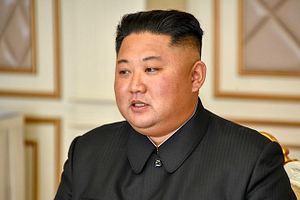The second summit between the U.S. and North Korea in Hanoi ended at the end of February without agreement. The negotiations themselves, however, have not broken down entirely. By avoiding direct criticism of North Korea leader Kim Jong-un, U.S. President Donald Trump left the door open to future talks. Yet North Korea has not gained any tangible benefit, despite the fact that ten months have passed since the Singapore Summit. Kim Jong-un must now rethink his negotiating strategy. With that in mind, I offer some proposals here. I also outline what the other countries involved should demand of North Korea.
First, extreme speech and behavior should be avoided. Looking back over the past several years, we find that Kim Jong-un’s remarks in respect of the United States and South Korea have fluctuated in a short space of time between bold statements, and more placatory remarks calling for dialogue. The fact that the Hanoi talks, on which the fate of the power structure hung in the balance, broke down was bound to be a major disappointment. Yet until the weekend, North Korea refrained from any provocative actions. Now, however, come reports of a short-range ballistic missile test, a possible sign of Pyongyang’s frustrations.
In the meantime, the North Korean media has not resumed its criticism of Trump, nor has the chairman of the SAC, the government or the Ministry of Foreign Affairs announced a particularly hardline statement. The press conference held by Vice Minister of Foreign Affairs Choe Son-hui on March 15 expressed strong dissatisfaction with the United States. However, its target audience was only ever intended to be foreign media and it received no coverage whatsoever in North Korea. This kind of self-control on the part of North Korea was previously unthinkable.
Second, North Korea should aim for the “big deal” with Trump. The U.S. president is facing countless challenges at home and abroad, and it is reasonable to question whether he will continue to maintain an interest in the North Korea issue. Moreover, at this stage Trump’s position is one of non-intervention in the internal affairs of North Korea; he is not demanding that Pyongyang abolish its concentration camps or adopt a market economy. This is in contrast to his predecessor’s call for the lifting of the internet embargo in order to normalize diplomatic relations with Cuba, and offers Kim Jong-un a golden opportunity to make a deal that focuses only on full denuclearization. Since Trump is aiming for a “big deal,” the wiser course of action is for North Korea to accept.
Even if North Korea considers the terms presented by Trump to be unreasonable, it must not attempt to modify them. Rather, it is important to focus on achieving a breakthrough by explicitly stating its own requirements that are in line with the terms put forward by the U.S. However, any agreement that imposes additional demands such as the withdrawal of strategic weapons from Guam and Hawaii is out of the questions. Subtle allowances in that regard need to be considered carefully.
A “big deal” agreement and “step-by-step and simultaneous action” at the implementation stage are not mutually exclusive, as is often erroneously believed, but rather go hand in hand. Rather than concluding a “big deal” at the summit, it would be more realistic for Kim Jong-un to seek an understanding that implementation will take time. Although it would be a mistake to allow North Korea to simply buy time, the United States must acknowledge that time is necessary to bring about final, fully verified denuclearization, from both scientific and technical perspectives.
Third, the two sides should be proactive on working-level negotiations. The Hanoi Summit exposed the difficulty of top-down consensus building. That said, if the United States and North Korea aim for a bottom-up agreement it will fail, the same way that negotiations in the 1990s and the Six-Party Talks failed. Ultimately, it is essential that the leaders build consensus. However, it is clear that no preparatory discussions were held prior to either of the summits in Singapore and Hanoi. Although the system in North Korea makes it difficult to empower negotiators, the United States should step up the frequency of contacts prior to negotiations, and Kim Jong-un should be able to bring more specific demands to the negotiating table for consideration by the United States. Currently, Pyongyang’s demands are a mystery until the day of the summit, a highly unrealistic approach to diplomacy.
The U.S. and other countries involved should prefer this kind of proactive approach toward Kim Jong-un. In a democratic system like those of the United States and Japan, even if no progress on denuclearization is made, as long as citizens have the sense that something is being done they will look with favor on their government’s efforts. If, despite this, negotiations reach an impasse, domestic support can be maintained by accusing North Korea of lacking integrity. For North Korea, however, an intangible sense that something is being done is pointless. Instead, it emphasizes tangible benefits such as the easing of economic sanctions. Instead of allowing North Korea to obtain tangible benefits, the region should obtain the major tangible benefit of “final, fully verified denuclearization.”
Achieving this will require work to assuage North Korea’s distrust of the United States and of democratic nations more broadly, in relation to whether economic sanctions will be lifted even if denuclearization is achieved; whether the normalization of diplomatic relations is possible during Trump’s term; or whether the next government of the United States will overturn past agreements and place pressure on Pyongyang again.
Atsuhito Isozaki is an associate professor at Keio University.

































